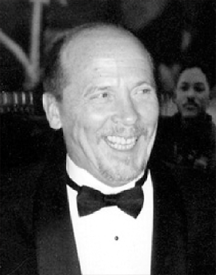 Beltrami’s River
Beltrami’s River
by Thomas Edward Shaw
For the first time, BELTRAMI’S RIVER – In Search of the Source – provides a dramatized account of Giacomo Constantine Beltrami’s fascinating and controversial story. He said he discovered the Mississippi River. Others said he didn’t.
It was a dangerous journey. It was a spiritual journey.
I lived in Minnesota for a number of years where I heard intriguing stories about an eccentric ex-judge who went in search of the source of the Mississippi River in 1823. Minnesota’s Beltrami County is named after him. It was alleged that he was a count; that he was crazy; that he was a clown; that he was an egotistical crank. Someone claimed that he was gay. Everyone had a different description of him. The stories were so incredible, I went to the Minnesota Historical Society to see what I could find.
 Almost everything I read about Giacomo Constantine Beltrami would contradict whatever I had just read the day before, but there was an insistent voice that spoke through all the documents, as if talking to me. I couldn’t resist. I began to read about the people Beltrami discussed. I did research on the native people he had encountered – their environment, how he may have reacted to them, how they may have reacted to him – the change that was affecting their lives; their beliefs and stoic acceptance of their fate. How does one from a first world culture encounter an aboriginal world?
Almost everything I read about Giacomo Constantine Beltrami would contradict whatever I had just read the day before, but there was an insistent voice that spoke through all the documents, as if talking to me. I couldn’t resist. I began to read about the people Beltrami discussed. I did research on the native people he had encountered – their environment, how he may have reacted to them, how they may have reacted to him – the change that was affecting their lives; their beliefs and stoic acceptance of their fate. How does one from a first world culture encounter an aboriginal world?
I followed Beltrami’s footsteps across the mall of Washington, D.C.; from the Capitol Building to the White House, trying to picture what he described as an undeveloped swamp on the shores of the Potomac River. At that time the U.S.A. was a young country. Beltrami described seeing a national government being run by “amateurs.”
Outside St. Louis, I went to the mystifying Indian mounds of Cahokia to compare my impression of this place to his. I retraced his footsteps across the grounds of Fort Snelling, known in his time as Fort St. Anthony. I went into the wilderness of northern Minnesota, visiting Dan Needham, the hereditary chief of the Chippewa tribe of Red Lake, where Beltrami was rescued by the chief’s ancestors. Accidentally, if there is any- such thing as an accident, I found myself more than once inside a sweat lodge communicating with the spirits. I followed Beltrami’s footsteps to Lake Julia and Bemidji – rowing through the same waterways, seeing the abundant wildlife and feeling the mystery of this beautiful place.
When I started writing this book, I thought it was about a man discovering the source of the Mississippi River. Instead it became a book about one who does things for the love of it, an amateur. The explorer Stephen Long called him an “audacious amateur.” In trying to describe what Beltrami had experienced, I became the foolhardy camp follower. When I carried the unfinished manuscript to a history professor at a nearby university, hoping she would at least offer constructive criticism, she slid the manuscript back across the table and impatiently said, “You’re not qualified to write this story.”
I smiled and left, hoping Beltrami might appreciate the irony. The book is done.